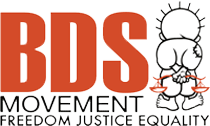To redirect America’s attention from our killer cop problem, some pernicious videos and articles lifting up BBQs, dance-offs, and ice cream handouts between police and Black communities have surfaced. This kind of feel-good propaganda offers redemption to a system that has, since its inception, abused its power to justify the terror, violence, incarceration and death of Black people, a luxury of atonement Black people are not offered as explained by Dr. Stacey Patton and Professor David J. Leonard.
In the fight for Black lives, one of the many rebuffs we receive when demanding an end to police violence and terror is that “not all cops are bad cops.” This assertion is almost always coupled with examples of law enforcement officials who step outside of their assigned duties to “help” Black people and champions the belief that we can change systems by changing the individuals who work within those system but not the system itself. We’ve seen time and again that doesn’t work. Policing and the system under which police work exists is bound to the enslavement, degradation, and murder of Black people and was never meant to protect us, but instead to exploit our bodies and labor to fill prisons and bolster capitalism. No feel-good video can deny that truth. No dancing, ice cream peddling, BBQ eating cop can change that.
Among other things, this is a matter of trust. No matter how many stories and videos of racism, prejudicial policing, brutality and death surface, America still doesn’t believe Black people when we say we are dying. Instead, in a desperate search for redemption for killer cops and a deadly policing system, people laud these videos and articles as evidence that our stories and experiences are hyperbolic lies at best, dismissing the overwhelming evidence that we are indeed unfairly policed and killed.
BBQs, handouts, ride-a-longs, ice cream, and videos of police being nice to Black people don’t save Black people from being extrajudicially murdered by those same police officers. We know this for certain. This dissonance puts Black people at more risk, not less. Pushing past the desire to deny the explicit evidence of police violence and terror, what does a BBQ or ice cream cone have to do with the deadly relationship between Black communities and the police? Nothing; the two things are wholly unrelated. What these stories make clear is that America is eager to erase from the spotlight our killer cop problem — an urge we must reject over and over again. We must trust Black people.
A BBQ would have no more saved Sandra Bland, Rekia Boyd, Freddie Grey, or Eric Garner than had they politely begged for their lives. The existing system of policing doesn’t regard Black people as fully human but instead hinges on the belief that we’re inherently criminal, a narrative promulgated by lawmakers and police themselves.
The same media that offers gentle accommodations to killer police uses long-standing, deeply-held, prejudicial beliefs about Blackness to place us on trial for our murders. Take the case of Freddie Gray, who died of spinal injuries while being unsafely and unlawfully transported by Baltimore police. Freddie’s death was ruled a homicide by the Baltimore medical examiner, but just two weeks ago all charges were dropped against his killers. Who’s responsible for killing Freddie? If he had gone to a BBQ where he danced with police would they then have thought twice before killing him? No. The assertion is as absurd as it is dangerous.
Some argue these events are a “first step,” a beginning during which reforms are demanded. They claim our refusal to engage in these distractions is proof we do not genuinely want to make things better, that we are intentionally keeping Black communities in opposition to police. We must reject this propaganda and do the real work of dismantling the existing policing structure and collectively building alternative systems for security and accountability — systems that make clear that Black people deserve equitable treatment under the law, not BBQs or handouts from the same police who unlawfully terrorize and imprison us. BBQ’s don’t save Black people’s lives or build trust; trust is built when justice is applied equitably and without prejudice.
This tactic used to undermine Black organizing and our explicit call for justice is not new. For decades Black organizers have asked for and been denied real systemic change. The Movement for Black Lives policy platform is a place to start. We don’t want ice cream from the police, but instead we demand an end to the wars against Black people and a defunding of the systems and institutions that criminalize and cage us.
















